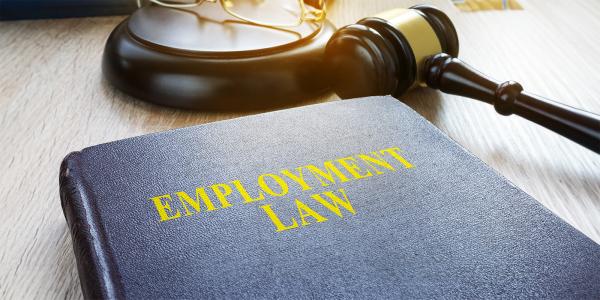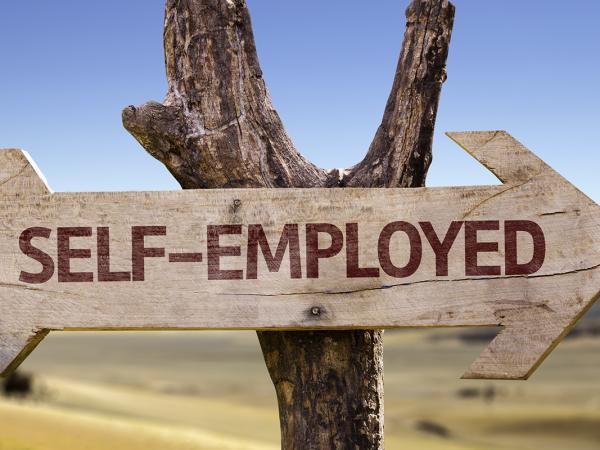Employment rights
The employment rights you are entitled to can depend on your employment status. There are three main statuses to consider – self-employed, ‘worker’ and employee.

Content on this page:
Introduction
People who are employees have significantly more employment law protection than ‘workers’, and the self-employed have very few employment rights at all.
Some engagers would prefer to treat their staff as self-employed when they are not, because it can save them money. However, as explained in our page on false self-employment, a person's employment status is not a matter of choice by their engager; it depends on the true nature of the relationship. It is particularly important to note that the parties cannot necessarily rely on the paperwork or contract in place if the reality of the situation is different.
The factors that will be considered in determining your employment status are set out on our page Employed, self-employed or neither. Note that tribunals will usually take the same type of factors into account when deciding employment status for tax law or employment law purposes.
The Supreme Court has found some ‘self-employed’ Uber drivers were ‘workers’ rather than self-employed for employment law purposes. With the growth of the gig economy and other ‘dependent’ self-employment, it seems likely that this situation could apply more widely. The rest of this page therefore explains a little more about ’worker’ status, which we know is a concept people find confusing.
‘Worker’ status
A ‘worker’, in employment law terms, is basically someone who provides work or a service as part of someone else’s business. For example, an electrician working for a single building contractor as opposed to his own domestic customers, could be a ‘worker’ for employment law purposes.
Their work arrangements tend to be midway between self-employment and employment in that they do not have the ‘master/servant’ relationship that an employee has with their engager (the person or company taking them on); but neither are they entirely their own bosses, deciding how much to charge for their work, how much holiday to give themselves, and so on.
This is why workers have a minimum set of employment rights to help protect them, including the right to be paid the minimum wage, to a workplace pension and to paid annual leave. More on these directly below.
‘Worker’ rights
Workers are entitled to certain employment rights, including:
- getting the national minimum wage
- protection against unlawful deductions from wages
- the statutory minimum level of paid holiday
- the statutory minimum length of rest breaks
- to not work more than 48 hours on average per week or to opt out of this right if they choose
- protection against unlawful discrimination
- protection for ‘whistleblowing’ – reporting wrongdoing in the workplace
- to not be treated less favourably if they work part-time
Under s88 Pensions Act 2008, being auto-enrolled into a workplace pension is also a ‘worker’ right. However, this is often overlooked – for example, it does not appear in GOV.UK guidance.
The problem with ‘worker’ status
The definition of a ‘worker’ in the Employment Rights Act 1996 includes anyone employed under a contract of employment but also extends to some individuals who are self-employed. This would be where that individual has (according to the Act):
‘entered into or works under any contract, whether express or implied and (if it is express) whether oral or in writing, whereby the individual undertakes to do or perform personally any work or services for another party to the contract whose status is not by virtue of the contract that of a client or customer of any profession or business undertaking carried on by the individual.’
Although ‘workers’ can sometimes be defined slightly differently depending on the right in question, this Employment Rights Act 1996 definition is applied for the main things like minimum wage and annual leave.
This definition tells us that there are three strands to ‘worker’ status:
- There has to be a contract between the worker and engager.
- The worker generally must carry out their work personally, rather than being able to send someone in his or her place.
- The worker must not really be in business on their own account (so, the engager isn’t a client or customer of the worker’s own business).
The last bullet point is where things get difficult and technical, as working out whether people are in business on their own account for ‘worker’ status purposes starts at the same point as working out if people are in business on their own account for employee versus self-employed purposes.
‘Worker’ status is basically for those who do not reach the ‘pass mark’ for acquiring employee status, but there is a lack of clarity over where the line is (or should be) drawn.
The Uber judgement
As explained above, the Supreme Court has found some ‘self-employed’ Uber drivers were ‘workers’ rather than self-employed for employment law purposes. In summary, Uber argued that drivers are independent contractors who work under contracts made with customers and do not work for Uber. Basically, they tried to argue that points 1 and 3 set out in the material directly above did not apply.
The Supreme Court disagreed. It said that even though there is no written agreement between Uber and the drivers, in reality (and it is what actually happens that counts) Uber London contracts with passengers and engages drivers to carry out bookings for it, which is the relevant legal relationship.
The Court also found that the drivers and services offered were tightly defined and controlled by Uber. The drivers had little or no say over their pay and working conditions because they were in a subordinate and dependent position in relation to Uber. The drivers therefore had little or no ability to improve their economic position through professional or entrepreneurial skill (thus, were not in business on their own account). In practice, the only way in which they can increase their earnings is by working longer hours while constantly meeting Uber’s measures of performance.
The judgement means that the specific Uber drivers that took the case (Mr Aslam and Mr Farrar), are entitled to certain employment rights which they were being denied. Other Uber drivers working at around the same time as the claimants (2016), will no doubt be taking a careful look at their positions.
Although we understand that Uber don’t consider that the ruling applies to all current and future staff because of changes made to their business practices, it is an important case with far reaching implications for other workers in ‘self-employed’ roles, where they have little autonomy and derive all or most of their income from the business they work for.
It is important that you seek advice if you are unsure on your employment status and/or believe your employment rights have been breached. We tell you where to do this on our false self-employment page.
Status for tax purposes
Employment law status is different from tax law status.
For employment law, there are three potential statuses to consider – employee, ‘worker’ and self-employed. Tax law only recognises two types of status – employed and self-employed.
Most cases to do with employment status are in the context of employment law, rather than tax law. It is worth noting that an individual’s ‘self-employed’ tax position would not automatically be impacted by an employment law decision that they were actually a ‘worker’ (or employee). However, on the facts, it would be open to HMRC/a tax tribunal to decide that someone who had won such an employment tribunal case, would be an employee for tax purposes and should have had pay as you earn (PAYE) operated by their engager.
Unless this happens, ‘workers’ would still probably be classed as self-employed for tax purposes and have to submit annual self assessment tax returns to tell HMRC about their earnings. This is confusing enough in itself, but it also has a knock-on effect for entitlement to statutory payments (as we consider directly below).
Statutory sick pay
As mentioned above under the heading ‘Worker’ rights, if individuals are ‘workers’ under employment law, they are entitled to rights such as annual leave, the national minimum wage and a workplace pension. Even if individuals are 'workers' under employment law however, they will not automatically become entitled to statutory sick pay (SSP).
This is because if they are being treated as self-employed for tax purposes, they will be paid gross rather than under the PAYE system. Not being paid under the PAYE system means that there is no secondary contributor (someone who is liable to pay Class 1 secondary National Insurance contributions). Secondary contributors are responsible for administering and part-financing statutory payments under the Social Security Contributions and Benefits Act 1992. If there is no secondary contributor, then it follows that the worker cannot be entitled to statutory sick pay or any other statutory payments for that matter, e.g. statutory maternity pay, etc.
Therefore, entitlement to statutory sick pay would require not only a change in the individual’s employment law status but a change in their tax status as well. In the absence of this, maternity allowance or employment and support allowance may be available instead from the Department for Work and Pensions (DWP)
Both tax and employment law in this sphere is developing as the way we work is changing. Therefore, we expect the law in this field to continue to evolve over the coming months and years as different situations are considered as they arise by either government, the Courts or both. This section will continue to be updated for any major changes as necessary.



